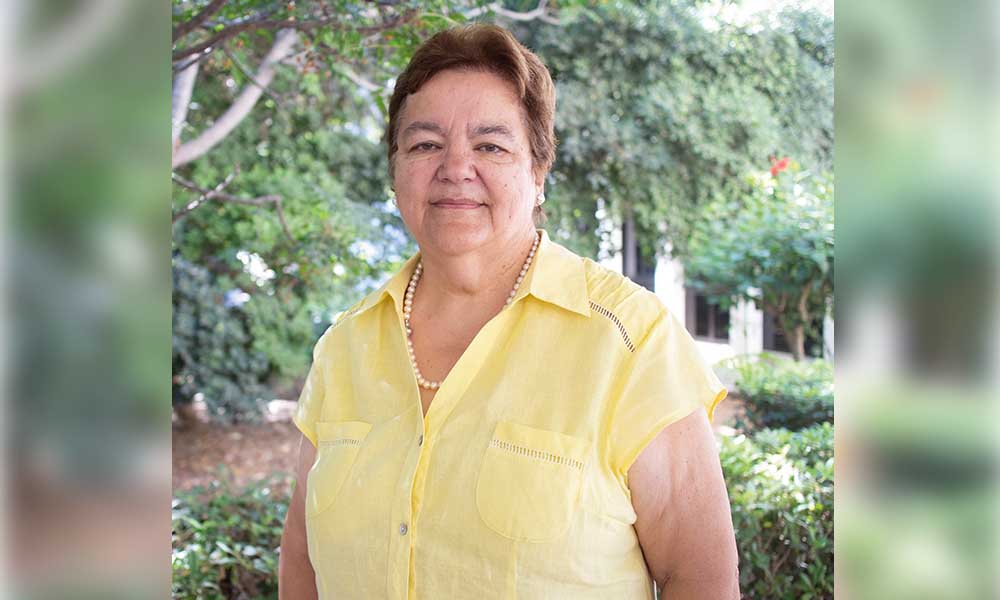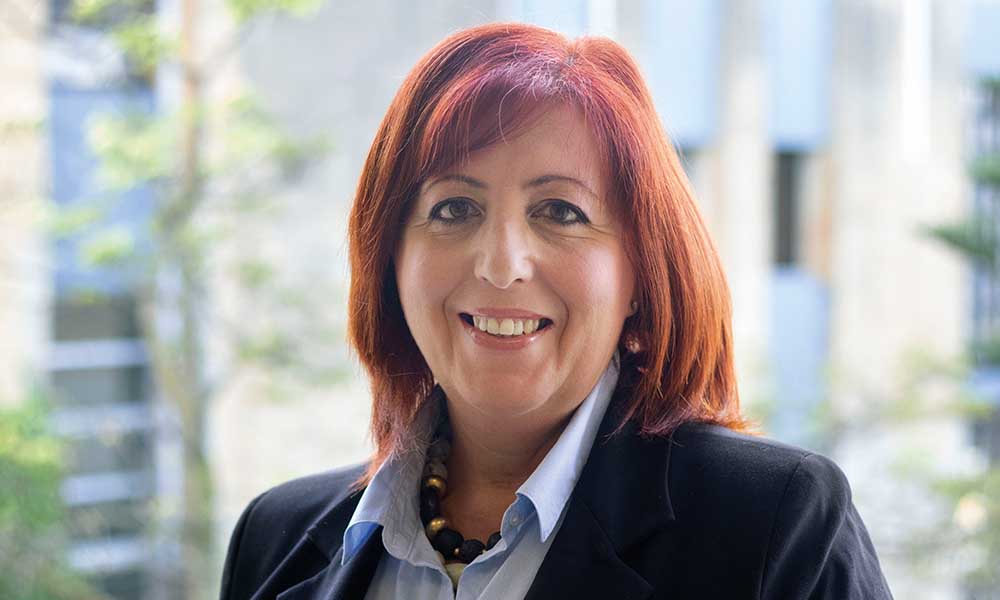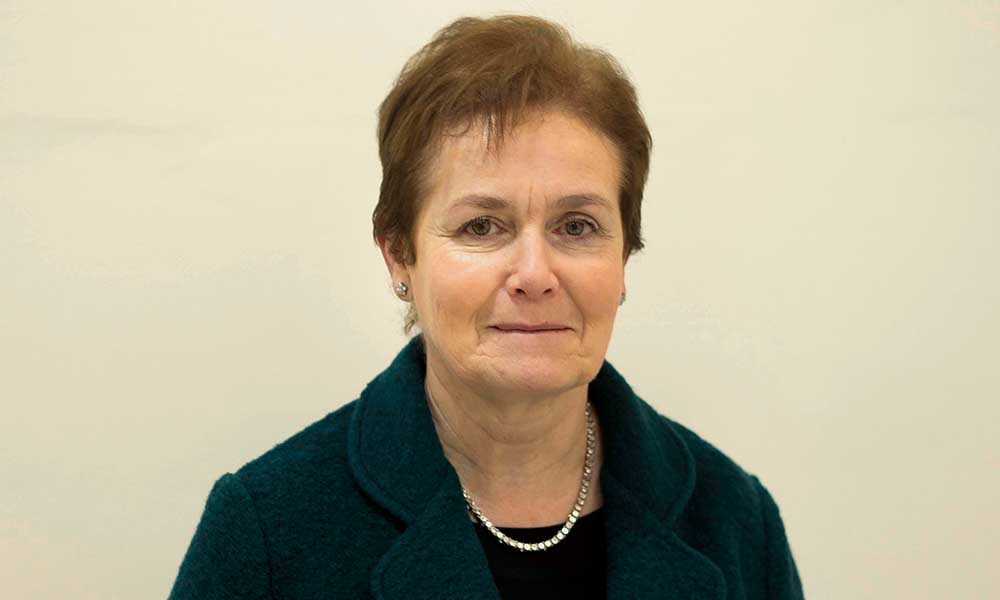Seeking a job and growing in it may seem like a commonplace thing nowadays. Yet for women at the top of their game today, the path was fraught with hurdles and required the utmost determination. THINK takes a moment out of the incredibly busy lives of three central women at the University of Malta (UM) to discuss their life stories and challenges quashed. Words by Martina Borg.
Prof. Marie Therese Camilleri Podesta

‘Do not try to be Superwoman, and expect to be perfect at everything.’
Her titles are too many to list in a single breath: doctor, anatomy professor, pathologist, the first woman to achieve a full professorship at the University of Malta (UM) in 1981, and the first woman to be appointed Assistant Dean. Taking me into her humble office, Camilleri Podesta visibly shrugs off any suggestion that her achievements have been particularly noteworthy, but her face lights up as she talks me through her family history and career.
As an only child, raised by a doctor father and a teacher mother, Camilleri Podesta was no stranger to breaking new ground. ‘Both my parents inspired me in their own ways. My father with his dedication to medicine, and my mother with her love of teaching and her unwillingness to let society dictate what she should do with her life.’
Her mother, she explains, was shunned by her peers following her decision to keep working despite her family’s social standing. Camilleri Podesta’s father meanwhile taught her science subjects, given that they weren’t offered at girls’ secondary schools at the time. She caught up with her male peers, and chose to study medicine rather than pharmacy, which was considered more ‘feminine’. Studying with only two other female students, Camilleri Podesta went on to qualify as a medical doctor in 1969, despite resistance from patients, who assumed she was less qualified than her male counterparts.
After three years practising medicine, she obtained a research post at UM, where she flourished despite the trials. After six intensive years, Camilleri Podesta got her PhD in 1979, and posts as a lecturer and professor followed soon after. During this time, she also began carrying out forensic work. She is now Malta’s leading forensic specialist.
It took around eight years before any women began to obtain top positions like hers. The reasons, she suggests, are both cultural and rooted in the promotion systems at academic institutions. ‘Obtaining promotions in the sector is particularly difficult for anyone with children, as it is linked to the number of papers you get published rather than the hours you spend teaching or on committees,’ she says.
Given the expectation of women to be primary caregivers, women often had to bow out of the race if they decided to have a family. Camilleri Podesta herself owed a lot of her success to the support she received from her parents and husband. Besides her staggering portfolio, the professor has also raised three children, all born in close proximity to each other — an impressive feat even without such a busy career. Looking back at her youth, she admits having spread herself too thin at times.
Prof. Carmen Sammut

Fear can be one of the most limiting factors in one’s achievements, but opening up about our challenges can lead to incredible waves of support.
Pro-Rector and Professor Carmen Sammut, too, starts her story with her childhood as we speak in her home one sunny morning. Her childhood takes us to an idyllic family farmhouse, with a young Carmen catching frogs in the then-rural streets of St. Paul’s Bay. As an only child to working class parents, Sammut was the first in her family to study beyond primary school. ‘My mum taught me to read even before I started formal education,’ she says over cups of coffee.
Academic development was not an obvious goal for Sammut but teachers at secondary school inspired her to persevere and breach the boy’s club that journalism was in the 70s and 80s. ‘My first job in the media was a part-time position in the cash office at the Union Press, while I was still at Junior College,’ she remembers. ‘Although I was heartbroken to discover that women weren’t allowed anywhere near the newsroom at the time, my time there opened my eyes to the barriers women faced in the media, and it was a life-altering realisation.’
The disappointment she faced set the tone for much of her work challenging gender inequality and discrimination. Driven by the lack of opportunities to study journalism locally at the time, Sammut took a position in broadcasting, working on the foreign desk. Meanwhile, UM was just starting its diplomas and courses in journalism, so she read for several part-time programmes to work her way up to a Master’s qualification, all while holding down a full-time job. Her achievements didn’t stop there. In 2001, her desire to specialise in political economy and communications led her to apply for a scholarship to study overseas. She obtained her PhD in Media and Communications at the University of London’s Goldsmiths College, and her experience inspired the UM to start building a new department.
‘Around the time, there were very few universities focusing on International Relations. But by the turn of the millennium, the focus began to shift, and the UM was an early adopter,’ she says, describing her department’s beginnings.
A lifetime of achievement culminated in her appointment to Pro-Rector for student and staff affairs in 2017. Her focus, unsurprisingly, is improving inclusion across the board. ‘As of the 90s, the percentage of female to male graduates was not just balanced, but I would say it had reached around 60% female to 40% male. But there are severe discrepancies and gender imbalances in particular subjects,’ she notes. ‘Our next challenge will be to identify and overcome the hurdles preventing women from studying subjects like engineering, as well as those keeping men away from careers like teaching.’
‘The history of women at the top of the game at UM is relatively short, with many of the pioneers in the institution still active today. As a result, there is a very small pool of female mentors,’ Sammut says. She also points out that the promotion system is prohibitive since it emphasises academic publications above public engagement. ‘Giving more currency to community involvement and to those so-called “softer skills” would have an impact on the number of women being promoted,’ she adds.
Veronica Grech

Surround yourself with people you trust, to make sure that things you’ve implemented with your team can proceed.
Veronica Grech is the UM’s first female Registrar. Ambitious and hard-working from the start, Grech laughs that she would never have imagined reaching such heights when she applied for her first job in 1972 as a shorthand typist at the UM’s Registrar’s office.
‘My father worked in the public service and my mother was a shorthand typist before getting married, a fact that was in itself quite rare at the time,’ she said smiling at the perhaps inadvertent similarity. Her parents’ support allowed Grech to sit for her ‘O’ Levels and ‘A’ Levels, which earned her the job at UM. Opportunities, Grech explains, were few and far between, but after about ten months she progressed to a position at the Rector’s office.
‘I moved to replace a female colleague who was getting married,’ she says, explaining that a marriage ban was still in operation at the time. Under this ban, which lasted until 1978, women who were employed in the public sector had to resign their posts if they married. Although such a prohibitive law would cause many to pause in their tracks, Grech explained that the lack of opportunities for women at the time meant that she took the chance anyway.
Working in this office inspired Grech to continue learning, and she embarked on a gruelling five-year BA evening course at UM, followed by an MSc in Management in Higher Education at the University of Surrey. Upon returning to Malta, Grech continued her meteoric rise. Following some resignations, Grech took on the formidable task of running the matriculation office. Grech rose to the occasion and oversaw the establishment of what is now known as the MATSEC Support Unit.
‘At the time, the number of students and subjects studied was rising rapidly,’ she says, describing her fifteen-year stay in the office. Grech is particularly proud of being one of the leading figures behind the creation of a university-wide student database and credit system, known as SIMS, launched in 2002. The latter then allowed the UM to adapt to the internationally recognised credits system still in use today, known as ECTS credits. ‘Implementing the software was complex and time-consuming. It demanded a lot of training that is still ongoing today, but it has now become indispensable,’ she said, adding that transcripts and exam results used to be hand-typed back in the day.
After such a remarkable list of achievements, Grech became Registrar in 2009. Throughout her time at UM, she has seen the institution change, grow, and make room for more women like herself.
‘There is so much more support for women and so many initiatives we hadn’t even dreamt of when I first started,’ she says, referring to flexible hours and working from home. She is hopeful and confident that the number of women reaching the top will increase in due course as long as women are allowed to gain the experience and opportunities they need. Preparing to retire from her post, Grech adds that she hopes that her legacy will be one of training and supporting her co-workers.





Comments are closed for this article!